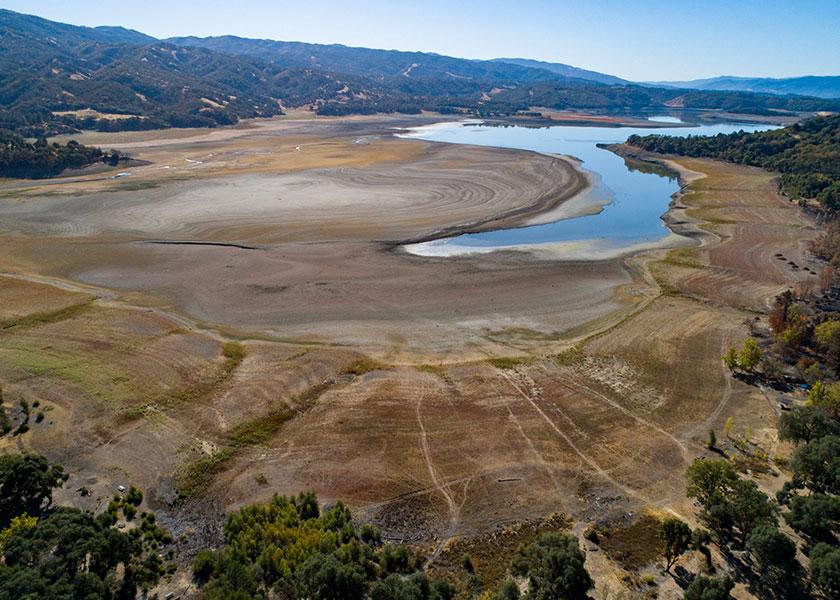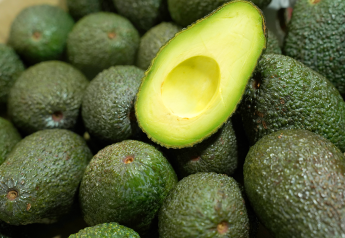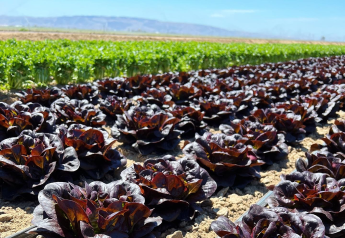Collaboration key for ongoing severe California drought

Collaboration may not be a word that comes to mind in politics these days, but in California, the ongoing drought issues are bringing political and water groups together.
On March 29, the state of California, the federal government and San Joaquin Valley water leaders made an announcement of agreement that would provide a new framework to manage California’s complex water system.
The framework is intended to create collaborative, science-based solutions to address the state’s greatest water supply and environmental challenges. It would potentially provide more certainty for farmers, businesses and communities. It could also provide better environmental conditions in the Sacramento-San Joaquin River Delta watershed, according to a press release.
"This new water framework is long overdue and will provide the much-needed flexibility for state and federal water managers to respond to conditions in real time,” Jim Costa, U.S. congressman representing much of the Central San Joaquin Valley, said in the release. “Sadly, California and Western states face another year of extreme drought. There are multiple causes for our water shortages, but we know, with climate change, this is the new normal. This agreement updates California’s approach to allocate water effectively with the challenges ahead.”
The collaborative approach is supported by the farming community. For one farm organization, it’s the way to balance the needs of the environment and economy.
“These voluntary agreements are also critical for the Lower San Joaquin River and its tributaries. We strongly encourage a renewed commitment to find collaborative solutions to ensure healthy ecosystems and a healthy economy for those farming communities,” Jamie Johansson, California Farm Bureau president, said in another release.
In addition to the agreement to update the approach in allocating water, Costa said there must be funding provided to fully address the issue.
“But this is only a first step. We must invest state and federal dollars to increase our water efficiency and supply," Costa said in the release. “Otherwise, we will never fully address our overdrafted groundwater, which is critical to the sustainability of California’s agricultural production and to providing clean drinking water to our rural communities.”
Sustainability is a key goal in the ongoing California drought crisis. To achieve that goal, collaboration and engagement are necessary.
“State and federal agencies must continue work to include as many water agencies as possible in this new strategic water plan,” said Costa.
With the goal of creating an enforceable agreement to better balance the management of California’s water system, state and federal leaders have actively worked with local water agencies since 2016 to bring together water agencies, farmers and environmental groups, according to the release.
Costa enumerated key funding to improve water storage in the Valley, including funding in the Infrastructure Investment and Jobs Act, which was signed into law by President Biden.
The funding brings billions to water storage in California, including:
- $1.15 billion to improve water storage in California and the San Joaquin Valley, which could benefit B.F. Sisk Dam, Sites Reservoir, Los Vaqueros Reservoir and Del Puerto Canyon Reservoir expansions;
- $3.2 billion to repair aging water infrastructure projects in California;
- $3.5 billion to improve drinking water infrastructure in California
- $1 billion for rural water projects;
- $500 million to repair aging dams and ensure safety for projects such as B.F. Sisk Dam/San Luis Reservoir; and
- $400 million for WaterSMART program grants for California water districts and farmers.
Funding to address drought includes:
- $1 billion to revitalize water recycling projects, which can expand water supplies;
- $980 million to environmental programs in the West; and
- $250 million to bolster desalination water projects.
Additionally, Costa listed the details of the more than $200 million in funding through the passage of a federal budget continuing resolution in fall 2021 to build, expand and repair water storage projects in California. According to the release, the bill provides:
- $60 million for the B.F. Sisk Dam expansion project near Los Banos to develop more than 130,000 acre feet of additional water storage;
- $80 million for construction of the Sites Reservoir, a 1.81-million-acre-foot, off-stream surface storage reservoir in the Sacramento Valley;
- $50 million for the Los Vaqueros Reservoir expansion project in the Bay Area to develop an additional 115,000 acre feet of water storage and new conveyance infrastructure; and
- $15 million for the construction of the Del Puerto Canyon Reservoir near Patterson, an 82,000-acre-foot, off-stream storage reservoir.
Read more:







